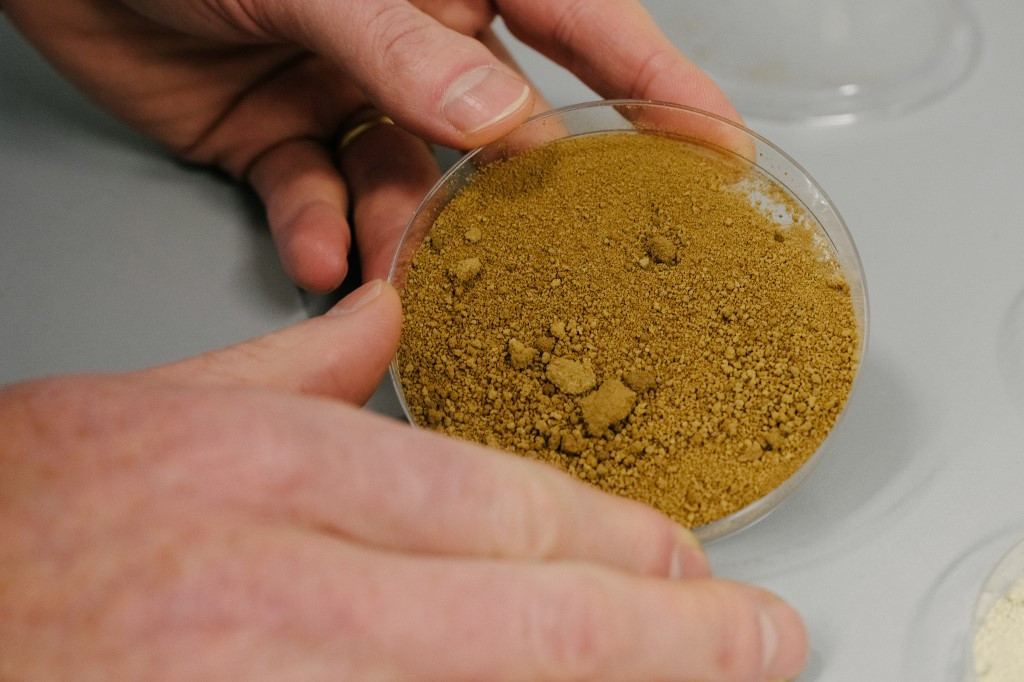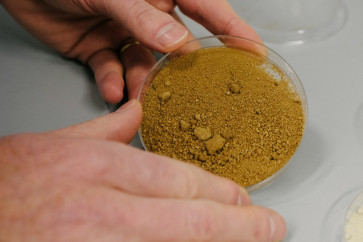Popular Reads
Top Results
Can't find what you're looking for?
View all search resultsPopular Reads
Top Results
Can't find what you're looking for?
View all search resultsScientists create 'sustainable' lab-grown coffee
"It's really coffee, because there is nothing else than coffee material in the product," Heiko Rischer tells AFP, pointing to a dish of light brown powder.
Change text size
Gift Premium Articles
to Anyone
 A picture shows sustainably grown coffee once the process is finished, the darker coulour is due to the roasting process at the VTT research lab in Espoo, Finland, on October 25, 2021. Latte drinkers may in the future be sipping on java sourced from a petri dish rather than a plantation, say scientists behind a new technique to grow what they hope to be sustainable coffee in a lab. (AFP/Alessandro Lampazzo)
A picture shows sustainably grown coffee once the process is finished, the darker coulour is due to the roasting process at the VTT research lab in Espoo, Finland, on October 25, 2021. Latte drinkers may in the future be sipping on java sourced from a petri dish rather than a plantation, say scientists behind a new technique to grow what they hope to be sustainable coffee in a lab. (AFP/Alessandro Lampazzo)
L
atte drinkers may in the future be sipping on java sourced from a petri dish rather than a plantation, say scientists behind a new technique to grow what they hope to be sustainable coffee in a lab.
"It's really coffee, because there is nothing else than coffee material in the product," Heiko Rischer tells AFP, pointing to a dish of light brown powder.
His team of researchers at the Finnish technical research institute VTT believe their coffee would avoid many of the environmental pitfalls associated with the mass production of one of the world's favourite drinks.
The coffee is not ground from beans, but instead grown from a cluster of coffee plant cells under closely controlled temperature, light and oxygen conditions in a bioreactor.
Once roasted, the powder can be brewed in exactly the same way as conventional coffee.
Rischer's team used the same principles of cellular agriculture that are used to produce lab-grown meat, which does not involve the slaughter of livestock and which last year was given approval by Singapore authorities to go on sale for the first time.
"Coffee is of course a problematic product," Rischer said, in part because rising global temperatures are making existing plantations less productive, driving farmers to clear ever larger areas of rainforest for new crops.


















